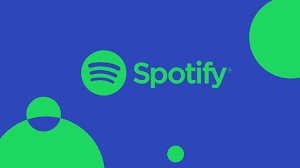In a move that marks the biggest transformation in its 15-year history, WhatsApp has announced that it will begin displaying advertisements on the platform. The announcement, made by its parent company Meta, signals a dramatic shift in the app’s monetization strategy and could redefine user experience on the world’s most popular messaging platform.
For over a decade, WhatsApp has been celebrated for its ad-free interface and strong commitment to privacy, which made it the go-to messaging app for over 1.5 billion users globally. However, the winds of change are blowing as Meta unveils its intention to integrate advertisements into certain parts of the app — particularly the Status and Channels sections.
WhatsApp’s Ad-Free Legacy Comes to an End
When WhatsApp was launched in 2009, its founders Jan Koum and Brian Acton vowed to keep the app free of advertisements. This principle was one of the foundational philosophies of the app and helped build a loyal user base that preferred WhatsApp’s clean, clutter-free experience over ad-heavy alternatives.
Even after Meta (then Facebook) acquired WhatsApp in 2014 for $19 billion, company executives publicly assured users that their messaging experience would remain private and ad-free. This commitment was reiterated multiple times over the years — until now.
WhatsApp is finally shifting away from this long-held policy, joining the ranks of its sister platforms Facebook and Instagram, where advertisements form a major part of the revenue model.
Where Will Ads Appear on WhatsApp?
According to a report from the BBC and statements from Meta, advertisements will not appear in personal chats or group messages, meaning users can continue to chat with friends and family without interruption.
Instead, ads will be displayed in:
- WhatsApp Status (similar to Instagram Stories or Facebook Stories)
- Channels (public broadcast tools for organizations, celebrities, influencers, etc.)
This is in line with Meta’s existing advertisement strategies on its other platforms where stories and reels serve as prominent spaces for ad placement.
Meta has clarified that end-to-end encryption and user privacy will remain intact. Ads will not interfere with private messages, and no personal conversations will be analyzed or shared for targeting ads. The introduction of ads is expected to be gradual, with the system likely rolling out in specific regions before a global expansion.
Monetization for Users: WhatsApp Channels and Accounts to Earn Revenue
One of the most notable aspects of this update is the introduction of monetization options for WhatsApp account holders. With ads now being part of the Status and Channels ecosystem, users who operate popular or high-traffic channels may soon be able to generate revenue, similar to how creators earn on platforms like YouTube, TikTok, and Instagram.
This opens the door for:
- Brands to reach their audience via targeted ads on popular channels.
- Content creators to monetize engagement by hosting sponsored content or ads within their channels.
- Businesses to integrate WhatsApp marketing into their digital strategies more effectively.
Meta is likely to roll out monetization eligibility criteria, much like its monetization policies on Facebook and Instagram, which could include metrics like follower count, engagement rate, and content originality.
Why Is WhatsApp Introducing Ads Now?
Meta has been under increasing pressure to monetize WhatsApp, which despite being one of the most widely used apps globally, does not contribute significantly to Meta’s revenue compared to its other platforms.
Some reasons for this change include:
- Rising operating costs: Maintaining infrastructure for billions of messages exchanged daily requires massive investments in servers, security, and customer support.
- Shareholder pressure: Investors have been urging Meta to unlock WhatsApp’s commercial potential.
- Success of WhatsApp Business: With over 200 million businesses using WhatsApp Business for customer service and communication, monetization through ads in business-oriented features now seems like a logical next step.
Moreover, Meta’s advertising business has faced challenges due to privacy-focused updates from Apple’s iOS, making it crucial for the tech giant to diversify its ad revenue sources.
User Reaction: Mixed Responses Across the Globe
As expected, the announcement has drawn mixed reactions from WhatsApp users around the world.
Supportive Views:
Some users and analysts view the move as a natural evolution of a platform that has long resisted monetization. They believe the inclusion of ads in the Status and Channel sections is less intrusive than introducing them in private chats.
Concerns:
Others, however, fear this could be a slippery slope, eventually leading to a more commercialized user experience. Concerns have also been raised about:
- How data will be used for ad targeting.
- Whether the user experience will become cluttered.
- Potential slowdowns or UI disruptions due to ad load times.
Meta, meanwhile, has assured that user data will not be compromised and that ads will be non-intrusive, much like those seen on Instagram Stories.
WhatsApp vs Other Messaging Apps: A Competitive Analysis
With WhatsApp now joining the ad-revenue model, how does it stack up against other messaging apps?
| Platform | Monetization Strategy | Ads in Chats | User Base (approx.) |
|---|---|---|---|
| Ads in Status & Channels | No | 1.5 billion+ | |
| Telegram | Premium subscriptions, Ads in large channels | No | 900 million+ |
| Signal | Donation-based, No ads | No | 50 million+ |
| Facebook Messenger | Ads in inbox and stories | Yes | 1.3 billion+ |
| Integrated with full e-commerce/ad system | Yes | 1.2 billion+ |
WhatsApp has long enjoyed the advantage of being ad-free, making it a preferred app in privacy-conscious regions. However, this change could potentially prompt users to explore alternatives if the ad experience becomes disruptive.
What Comes Next: Timeline and Rollout
Meta has not announced a precise date for the global rollout, but internal sources suggest:
- Pilot testing in select countries (possibly India, Brazil, and the US) will begin within a few months.
- A full rollout may occur by early to mid-2026 depending on user feedback and technical readiness.
- New advertising tools and metrics for brands will also be introduced, likely through Meta’s Business Manager platform.
Conclusion: A Turning Point in WhatsApp’s History
The introduction of ads marks a watershed moment for WhatsApp — ending a 15-year era of ad-free user experience. While Meta has promised that privacy, encryption, and core messaging services will remain unchanged, the move reflects a broader trend of platform monetization across the tech industry.
For everyday users, this could mean minor adjustments to their interface, while for businesses and creators, this opens up new revenue opportunities. How the global user base reacts — and how effectively Meta manages ad experience without compromising user trust — will determine whether this decision becomes a success or backfires.
























